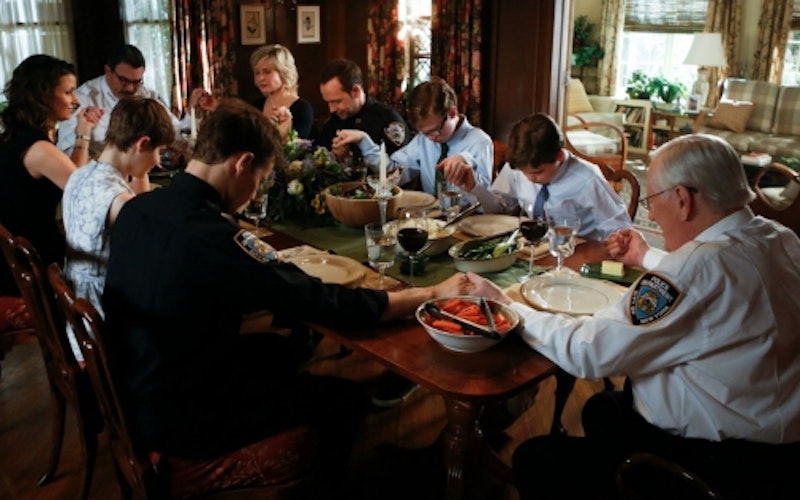
TV
Blue Bloods and the Spirit of the Law
There are simply too many cop shows. We are all familiar with their stereotypical plotlines: a crime is committed, detectives search for clues, and after a red herring or a car chase, the bad guy is brought to justice. Is it possible to find a series that feels new instead of toilsome? Blue Bloods, starring Tom Selleck and Donnie Wahlberg, subverts cop-and-robber motifs to instead offer a rich and authentic look into the lives of a close, Catholic family who has been in law enforcement for generations. The Reagans find that delicate balance between the word of the law and the spirit of the law, a calling which each family member enacts with conviction and excellence.
The Reagans, however, are far from a perfect family, and the show does not shy away from exposing their flaws. Rather, it amplifies them, weaving their shortcomings into a redemptive, overarching plot. Despite the obvious imperfections in the characters, I don’t feel mentally or emotionally exhausted after watching a few episodes in succession. Instead, I’m left with the reassurance that God doesn’t only call the saintly to do his work. The Christian life is one where sinners are redeemable, and even the deeply flawed can find God and be used by him.
In one episode in particular, entitled “Leap of Faith,” the family's understanding of God is challenged when a witness claims to have heard a voice from heaven telling her that her mother had been murdered. The Reagans find themselves questioning whether God actually communes with individuals, especially because Danny (Wahlberg) feels his relationship with God is confined to Sunday mass.
The Reagans enact justice and mercy because they themselves have been recipients of justice and mercy.
A memorable scene in this episode occurs when the family (all four generations) sits down to Sunday dinner and participates in a liturgical prayer. This is familiar to faithful viewers of Blue Bloods, as nearly every episode contains a supper full of close-ups and quick-witted dialogue, where the Reagans break bread together. These scenes demonstrate the heartbeat of the series, and the dinner in “Leap of Faith” is no exception. The family initially laughs off the idea that God would speak to a witness, but when they discuss prayer, the patriarch (Selleck) says that he has felt God speak to him. Most of the Reagans respond with skepticism. Does God really talk back to us when we pray? Does he ever commune with sinners?
The religiosity of the Reagan family is met with a deep spirituality. I am struck by the echoing chords of God’s mercy when I watch this fictional yet strangely familiar family sit down to dinner. Blue Bloods does something spectacular here: it achieves an honest dialogue about the divide between religious practice and its real application to life, all without a hint of kitsch. This is why the Reagans are so refreshing to me; it’s exceedingly rare to find a popular television show that can explore hot-button themes like police brutality, racial profiling, and divorce while still maintaining characters who are redeemed in spite of these things. And it does so while avoiding the cheesiness that often accompanies the blatant exploration of Christian themes.
Ultimately, Blue Bloods is a striking example of how flawed, hurting individuals can still do great good. The Reagans are governed by a higher sense of justice, one which is inextricably tied to their devout faith. Yet despite this faith, we still see them question God and his goodness in the face of a tangled, sinful world. Eventually, though, even the most skeptical of all the Reagan family members can be found looking upward, perhaps with a renewed interest in pursuing a God who is not confined to the pews and the altar on Sunday mornings.
I am reminded strongly of the biblical David when I watch this show. Although “a man after God’s own heart,” David is also remembered as an adulterer and murderer. The Reagans, like David, are deeply flawed. Also like David, they are public figures, with their sins on display. In spite of these things, or perhaps because of them, the Reagan family is a picture of grace and redemption. They do the best with what they are given and they try to enact justice and mercy because they themselves have been recipients of justice and mercy. Though they have experienced sin, they are still functioning with grace and gratefulness, modeling a healthy skepticism that God seems to answer using the very vocation and bloodline that caused the doubt in the first place.
Topics: TV, Culture At Large, Arts & Leisure